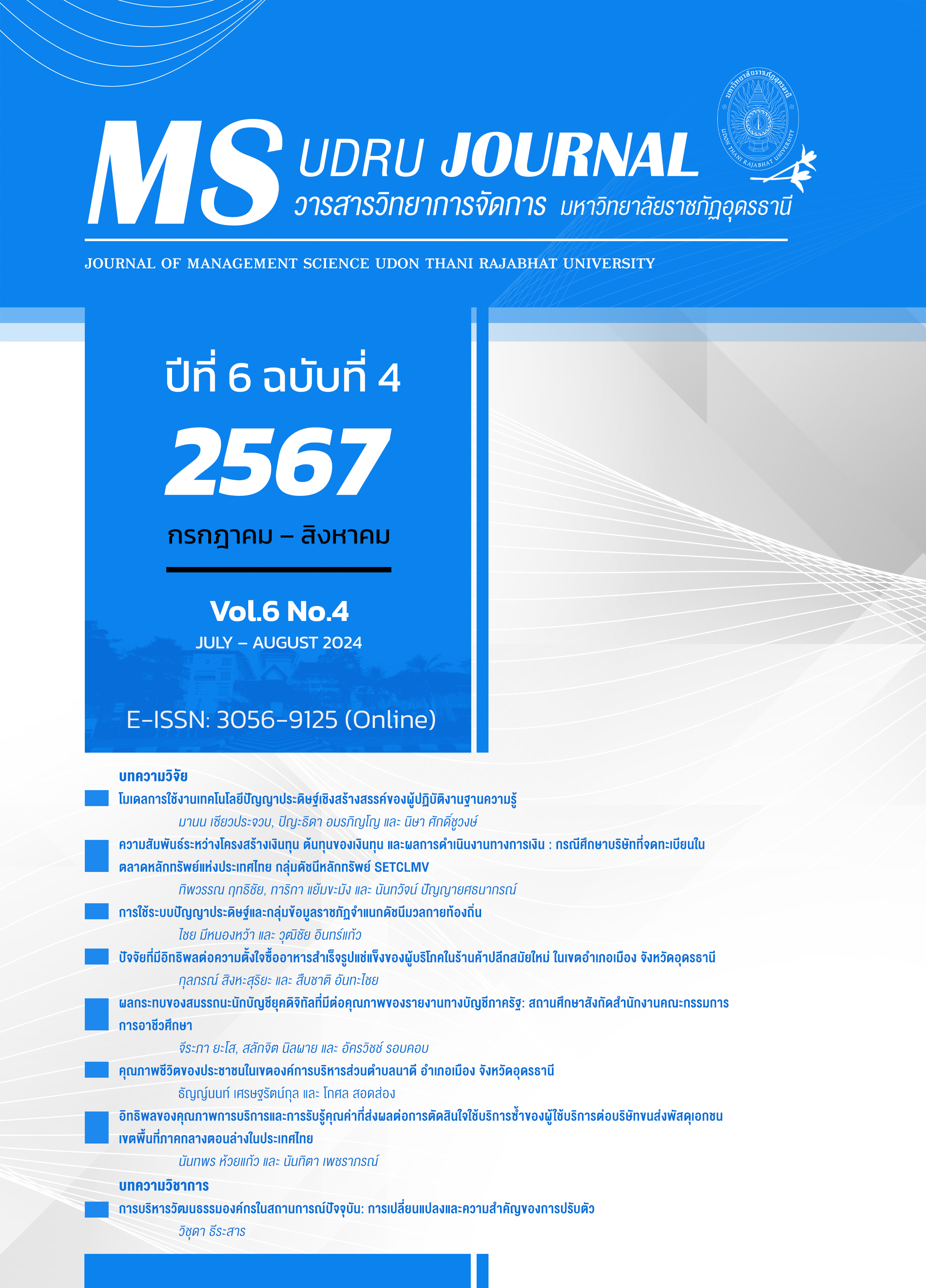MANAGING ORGANIZATIONAL CULTURE IN THE CURRENT CONTEXT: ADAPTATION AND THE IMPORTANCE OF CHANGE
Main Article Content
Abstract
The transformation of organizational culture is a critical process for adapting to the rapidly changing global environment, especially during the COVID-19 pandemic, which profoundly impacted work methods and organizational culture. This article explores the role of organizational culture and the challenges of post-COVID-19 transformation while also suggesting ways to build a resilient and adaptive organizational culture. Organizational culture is a collaborative work pattern that encompasses shared values, beliefs, and norms, influencing employee behavior and performance. A strong organizational culture can enhance work efficiency and employee satisfaction, whereas a weak culture may lead to conflicts and disorganized work. The contemporary transformation of organizational culture faces challenges from economic, political, and COVID-19 related circumstances. This article highlights that changing organizational culture requires a multifaceted strategy such as understanding the current culture, leadership support for change, strategic planning/implementation, employee participation, appropriate recruitment, monitoring progress, patience, training, leadership development, and organizational design. Understanding the factors that influence cultural change friction will help manage the transformation effectively and sustainably, leading to success and competitiveness in the modern era.
Article Details

This work is licensed under a Creative Commons Attribution-NonCommercial-NoDerivatives 4.0 International License.
บทความที่ได้รับการตีพิมพ์เป็นลิขสิทธิ์ของคณะวิทยาการจัดการ มหาวิทยาลัยราชภัฏอุดรธานี
ข้อความที่ปรากฏในบทความแต่ละเรื่องในวารสารวิชาการเล่มนี้ ไม่ใช่ความคิดเห็นและความรับผิดชอบของผู้จัดทำ บรรณาธิการ กองบรรณาธิการ และคณะวิทยาการจัดการ มหาวิทยาลัยราชภัฏอุดรธานี ความรับผิดชอบด้านเนื้อหาและการตรวจร่างบทความแต่ละเรื่องเป็นความคิดเห็นของผู้เขียนบทความแต่ละท่าน
References
นราธิป ศรีราม. (2559). แนวทางการพัฒนาการบริหารราชการไทย หน่วยที่ 15 ในเอกสารการสอนชุดวิชาการบริหารราชการไทย. นนทบุรี: มหาวิทยาลัยสุโขทัยธรรมาธิราช.
พรรณวดี ชัยกิจ. (2564). การแพร่กระจายของข่าวปลอมเกี่ยวกับการแพร่ระบาดของโควิด-19 และมาตรการป้องกันของไทย. วารสารรัชต์ภาคย์ สถาบันรัชต์ภาคย์, 15(40), 15-32.
วิเชียร วิทยอุดม. (2551). องค์การและการจัดการ. กรุงเทพฯ: ธนธัชการพิมพ์.
สุพิณ เกชาคุปต์. (2559). วัฒนธรรมองค์กรและการเปลี่ยนแปลง หน่วยที่ 13 ในเอกสารการสอนชุดวิชาการบริหารการเปลี่ยนแปลง. นนทบุรี: มหาวิทยาลัยสุโขทัยธรรมาธิราช.
เสาวลักษณ์ นิกรพิทยา. (2550). การจัดการและพฤติกรรมองค์กร. มหาสารคาม: มหาวิทยาลัยราชภัฏมหาสารคาม.
Burke, W. W. (2017). Organization change: Theory and practice (4th ed.). California: Sage Publications.
Kimberlee. (2020). 7 Steps To Facilitate A Successful Cultural Transformation At Your Organization. Retrieved September 20, 2021, from https://harver.com/blog/cultural-transformation/.
Kotter, J. P., & Heskett, J. L. (1992). Corporate culture and performance. New York: Free Press.
McKinsey & Company. (2 (McKinsey & Company) state of Organizations 2023: Ten shifts transforming organizations. Retrieved from https://www.mckinsey.com.
Schein, E. H. (2010). Organizational culture and leadership (4th ed.). California: Jossey-Bass.
Scott, W. R. (2003). Organizations: Rational, natural, and open systems (5th ed.). New Jersey: Prentice Hall.


